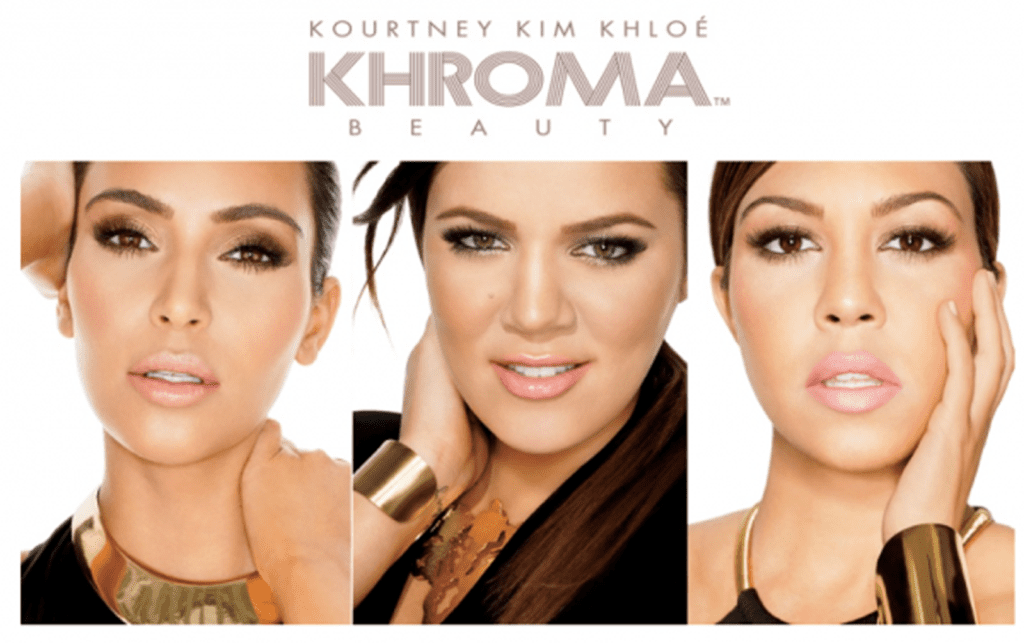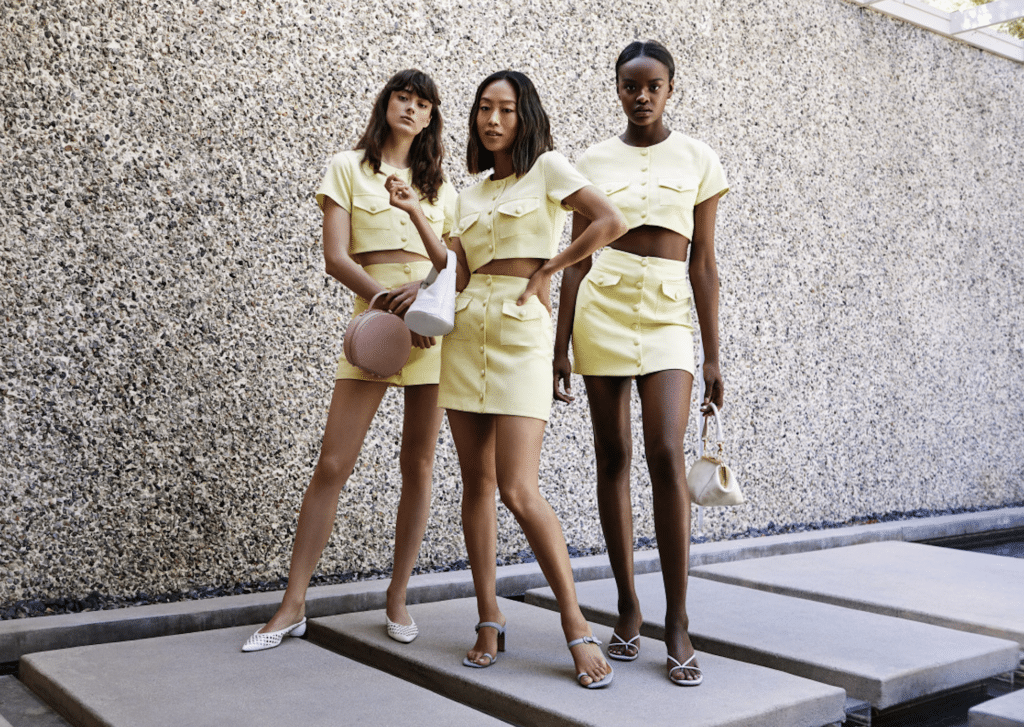A legal battle over the Kardashian’s controversy-causing Khroma Beauty could end up in front of the nation’s highest court if a European makeup licensee has its anything to do with it. Kim, Kourtney, and Khloe Kardashian landed on the receiving end of a trademark infringement lawsuit in September 2014 when Kroma Makeup EU, LLC (“Kroma EU”) accused them of willfully hijacking the name of their now-defunct beauty brand, thereby, causing the already-established Kroma to lose sales as a result of “consumer confusion with the Kardashians’ Khroma products” and ultimately shutter, as well.
Following a multi-year back-and-forth before a federal court in Florida and a pair of losses from the U.S. Court of Appeals for the Eleventh Circuit, Kroma EU – which was granted a license in October 2012 to import, sell, and distribute “Kroma”-branded products in Europe from Kroma trademark holder By Lee Tillett, Inc. – has asked the Supreme Court to hear its case against the famous sisters.
Unsatisfied with the Eleventh Circuit’s June refusal to rehear the case after its 3-judge panel decided that Kroma EU’s “licensing agreement [with] Tillett … did not afford [it], as the licensee, sufficient ‘rights in the name’ to sue [the Kardashians for trademark infringement] under the Lanham Act,” the British beauty licensee has asked the Supreme Court to review the case and ideally, resolve “a three-way circuit split” centering on who has the ability to pursue trademark infringement claims under section 43(a) of the federal trademark statute.
According to Kroma EU’s petition for certiorari, over a year after it was granted the exclusive right to market and sell Kroma-branded beauty products in Europe, the reality television sisters debuted a similarly-named collection of lip glosses, eye shadow palettes, and other beauty products in the U.S. and internationally, which prompted a since-settled legal fight between the Kardashians and their Khroma partner co. Boldface Licensing, and By Lee Tillett, Inc. over the use of the Khroma name in the U.S. market. Thereafter, Kroma EU filed a suit of its own (in the U.S.) against the mega-famous sisters for trademark infringement in connection with their use of the Khroma name in Europe.
In the Kroma EU case, the lower courts determined that because it was merely a licensee of the Kroma mark, and not the owner of it, Kroma EU lacked the ability to file suit against others for infringing it. The U.S. District Court for the Middle District of Florida held that Kroma EU lacked standing to file suit because in order to do so, “a licensee must have contractual – in addition to statutory – standing,” and Kroma EU lacked contractual standing because its license agreement with By Lee Tillett “failed to provide Kroma EU with sufficient ‘rights in the [Kroma] name’ to pursue trademark infringement claims against the Kardashians.”
On appeal, the Eleventh Circuit similarly held that Kroma EU lacked standing to file suit against the famous sisters for their use of a similar name on beauty products sold in Europe.
The problem with both courts’ decisions, according to Kroma EU? They rely on a standard for determining whether a party has standing to file a Lanham Act trademark infringement lawsuit that is “much more restrictive than in any other circuit.” For instance, the courts in the case at hand opted not to make use of the“reasonable interest” test employed by the First, Fifth, Seventh, and Ninth Circuits, a test that enables any party with“a reasonable interest to be protected against [infringement]” to file suit for infringement.
Similarly, the courts did not rely on the two-part Lexmarktest, which is used by the Fourth Circuit, and which states that in order to have standing to file an infringement suit under the Lanham Act, a plaintiff must be able to “plead (and ultimately prove) an injury to a commercial interest in sales or business reputation proximately caused by the defendant’s misrepresentations.”
“Rather than asking whether Kroma EU had a reasonable interest to be protected against the Kardashians’ infringement of the KROMA mark, or, per Lexmark, whether Kroma EU incurred an injury to commercial interest as a proximate result of the infringement,” Kroma EU asserts in its filing, “the Eleventh Circuit’s inquiry was strictly limited to whether the licensing agreement between Kroma EU and the American owner of the mark, Tillett, authorized Kroma EU to bring suit against infringers.”
“If either of the other two less restrictive approaches to § 43(a) Lanham Act standing were applied in this case, it is likely that Kroma EU would be permitted to assert the trademark infringement claims,” it continues. With that in mind, the beauty licensee has asked the Supreme Court to review the Eleventh Circuit’s decision. It will now be up to the court’s 9-justice panel to decide whether or not to take on the case, which is all but a sure thing. According to the Supreme Court blog, of the 7,000 to 8,000 petitions filed each term, the court only takes on about 80 cases.
Hardly strangers to litigation, the Kardashian/Jenners have been named in a long list of infringement-related lawsuits in recent years – from Kendall and Kylie Jenner’s unauthorized use of others’ images for a collection of vintage-inspired t-shirts to Kim Kardashian allegedly stealing the design of her hot-selling “Vibes” Kimoji fragrance.
*The case is Kroma Makeup EU, LLC v. Kimberly Kardashian, Kourtney Kardashian, and Khloe Kardashian.














